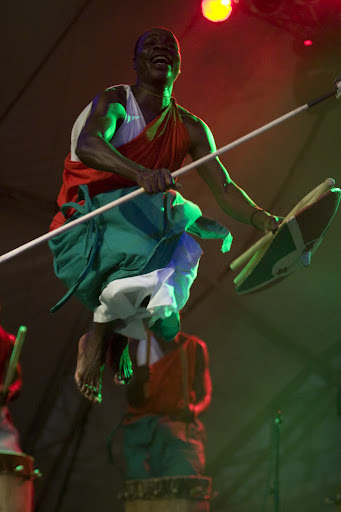
BUJUMBURA - Some 1,300 fighters with Burundi's rebel National Liberation Forces (FNL) have answered their leadership's call to assemble at a resettlement site, giving the African nation's fragile peace process renewed hope, an AFP correspondent said Monday.
Under a deal agreed between the government and the rebels, the FNL rebels are eventually to be integrated into the country's security and defence forces.
"We have gathered 1,300 fighters here at Rugazi today" in northwest Burundi, said FNL spokesman Pasteur Habimana.
Lorries would bring more fighters in until they had reached the agreed figure of 3,000 fighters, he added.
The FNL had until recently only managed to assemble 155 fighters. Rugazi, 35 kilometres (22 miles) north of the capital Bujumbura, is in the provinceof Bubanza, one of the FNL's main strongholds.
"The Palipehutu-FNL has just shown that it wants peace. We call on the army to do the same and return to their barracks," Habimana added. The Palipehutu is the rebels' political branch.
Army spokesman Lieutenant Colonel Adolphe Manirakiza declared himself satisfied that the turn-out had relaunched the peace process.
"We hope that is going to continue," he added. If it did, the Burundian government would fulfil its promises, he said.
At the beginning of July, the FNL suspended the process of assembling its fighters, calling for the government to recognise its political wing as a political party.
"The FNL were obliged to make a gesture of goodwill in resuming the gatherings of its fighters under pressure from the international community, which had stopped sending supplies to their fighers," a diplomatic source who told AFP.
"In reality, there has not been any real progress in the talks between the two sides, said the source, who asked not to be identified.
An initial peace deal between FNL and the government was signed in 2006, three years after a civil war claimed 300,000 lives.
The east African country is still emerging, with difficulty, from the conflict that began in 1993, mainly pitting rebels from the Hutu majority population against the Tutsi minority, which then dominated the army.
A power-sharing government was formed in 2001, while clashes were still taking place. South Africa mediated among the different sides until almost all the rebel groups agreed to a ceasefire
Source: MoneyBiz

1 comment:
Aba bantu batamba ingoma nkuku babahe??
They are Masters but wondering what they are benefiting from it(in terms of the current hard time situation in Burundi...)
Mugabo akaranga nako nyene karakewe naho tutazi abo dutambira!!!
Edward
Australia
Post a Comment